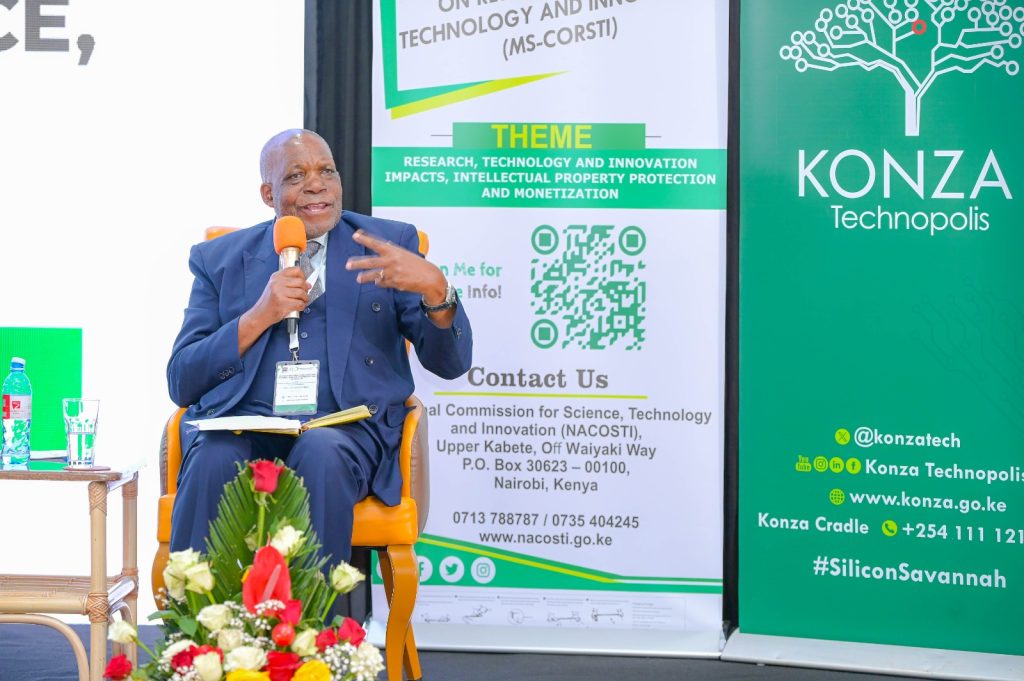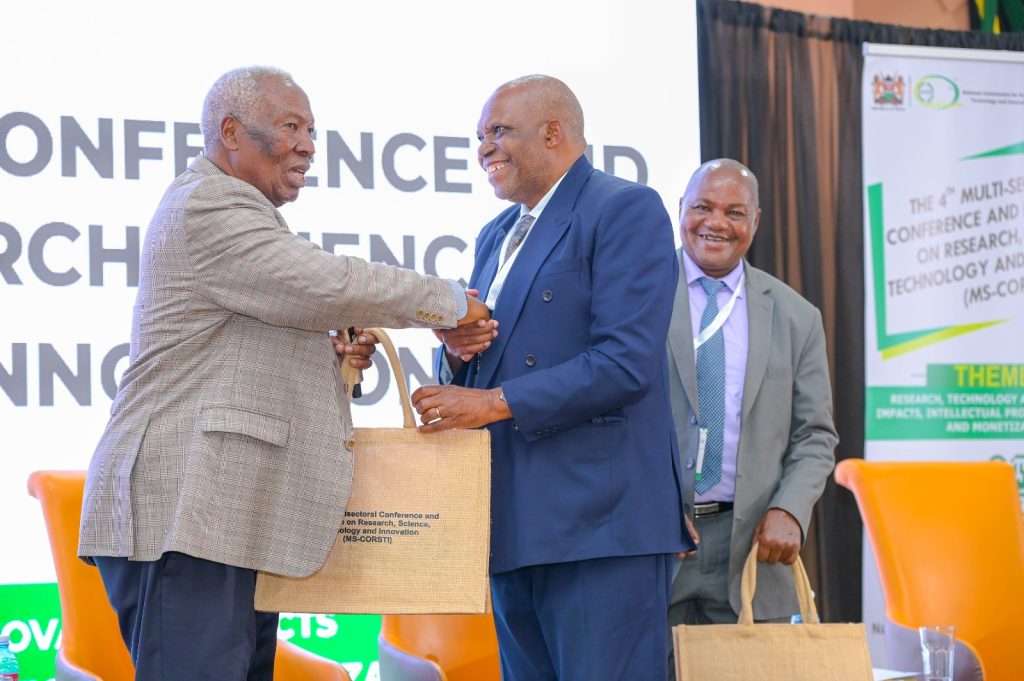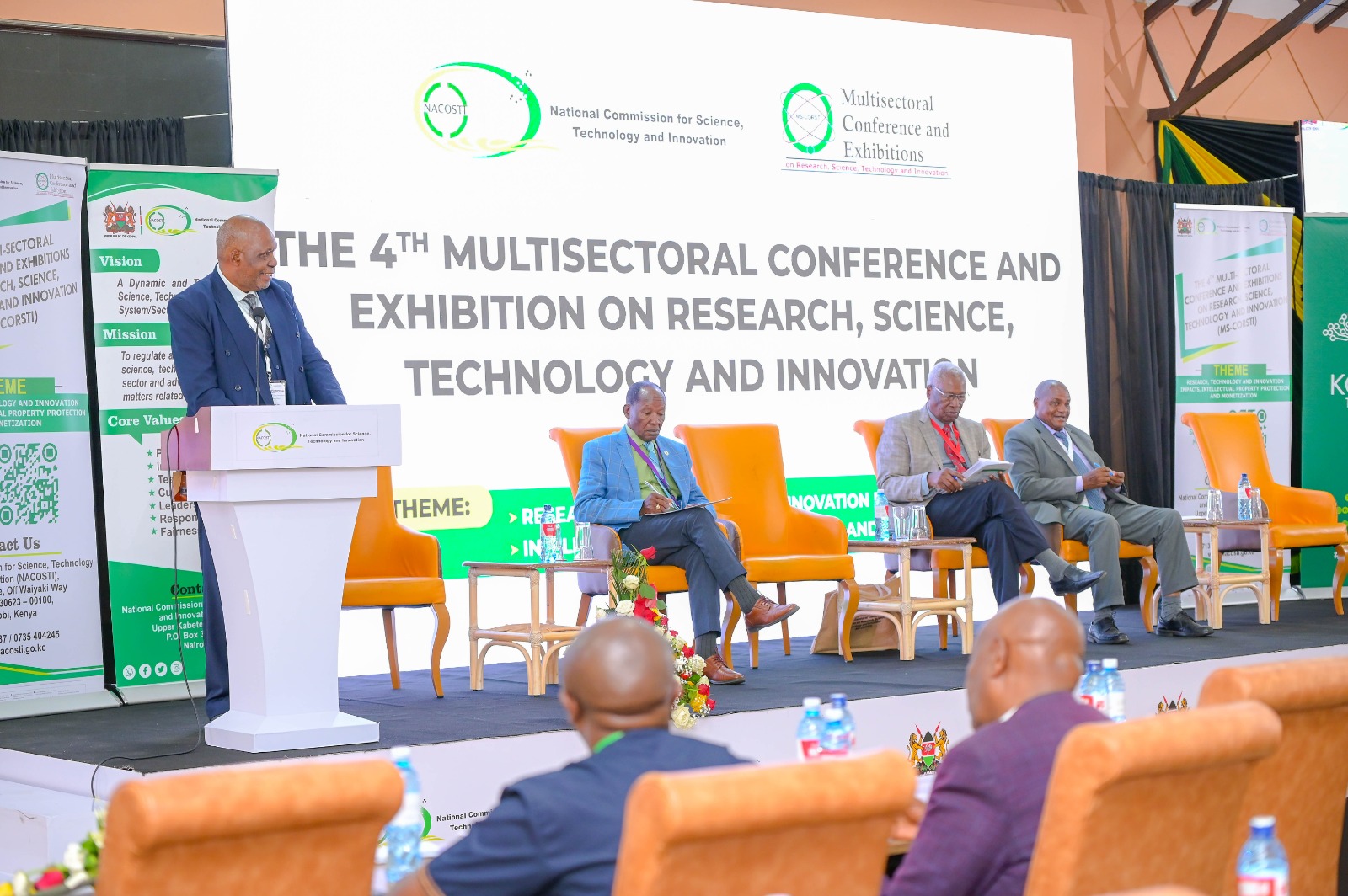Multimedia University of Kenya (MMU), Deputy Vice Chancellor—Academic Affairs, Research and Innovation, Prof. Livingstone Ngoo, has called on Kenyan universities to urgently embrace multidisciplinary research as a strategy for survival and national relevance, amid shrinking state funding.
Speaking at the 4th Multi-sectoral Conference and Exhibition on Research, Science, Technology, and Innovation (STI) at Lake Naivasha Resort, Prof. Ngoo emphasized that the future of research lies in collaboration across disciplines to generate impactful, society-oriented solutions.
“University funding from the state is diminishing. The only way forward is for universities to understand the importance of collaborative research in a multidisciplinary mode,” said Prof. Ngoo.
Drawing a vivid analogy, Prof. Ngoo likened effective research to a posho mill, noting that it must be fed with the right input to yield valuable output.

“Consider a posho mill that mills maize and cassava, or maize and millet. The output is nutritionally superior and caters to needs of wider publics,” he explained while urging institutions to ensure that research outputs offer tangible benefits to society.
Through use of practical examples, Prof. Ngoo referenced a storage innovation—suffocation bag, developed by Purdue University in the U.S.—which proved effective for maize but not for beans, as bean weevils could chew through the bag lining. “This shows the need for multidisciplinary approaches involving entomologists, social scientists, and nutritionists to develop better storage solutions,” he said.
He also critiqued the conventional approach to road design in Kenya, which has traditionally been led solely by engineers. “The results have often failed to meet societal needs. By working with other stakeholders—matatu drivers, pedestrians, cyclists, and social scientists—we can achieve more inclusive and efficient road systems,” noted Prof. Ngoo.
Prof. Ngoo proposed that the classification of Kenyan universities should reflect their research strengths and encourage them to pursue collaborative, cross-disciplinary research agendas.

The conference, organized by the National Commission for Science, Technology and Innovation (NACOSTI), was officially opened by the Principal Secretary for Science, Research, and Innovation in the Ministry of Education, Prof. Shaukat Abdulrazak.
Speaking on behalf of Cabinet Secretary for Education, Prof. Abdulrazak underscored the vital role of science, technology, and innovation in achieving Kenya’s Vision 2030 and the Bottom-Up Economic Transformation Agenda (BETA).
The four-day event, themed “Research, Technology and Innovation: Impacts, Intellectual Property Protection and Monetization,” brought together academia, government agencies, and industry stakeholders to share innovations, foster partnerships, and reimagine the role of STI in driving Kenya’s inclusive development. The event was held from June 9th-12th, 2025.
By Nicanor Ndiege

